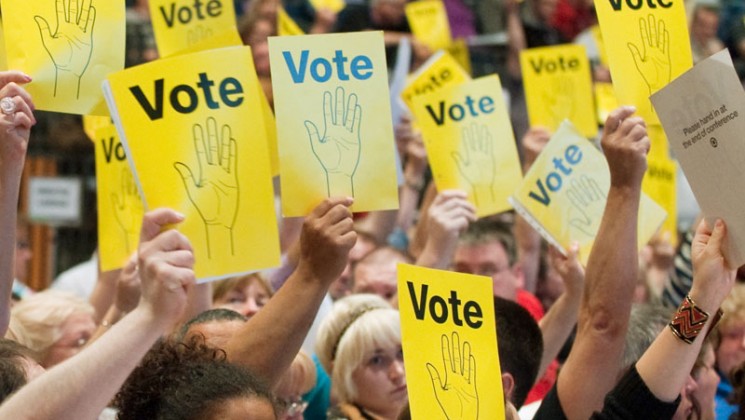Nearly a decade after the global financial crisis first hit, the pressure is still unrelenting on our public services and the workers who provide them – including UNISON members working for public bodies, private companies or community and charity organisations.
That is the background for June’s national delegate conference, when some 2,000 delegates from branches and regions across the union will gather in Brighton to discuss the union’s priorities and policies for the next 12 months.
As motion 39 – about getting the public onside with our public service campaigning – notes:
“Despite the unprecedented cuts that our members and the communities they serve have already experienced, a raft of further measures now threaten to push services to breaking point.”
The motion, from the union’s NEC, points out that the causes of the problems include:
- a growing funding crisis hitting social care across the UK;
- an NHS funding shortfall described as “a humanitarian crisis” by the Red Cross;
- £3bn ‘savings’ imposed on schools in England by 2019/20;
- continuing cuts and redundancies across local government and police services;
- and much more.
“UNISON, as the largest public services trade union, carries a heavy responsibility,” adds the motion.
“Not only must the union counter the strong headwinds and continue to make the arguments for an alternative to the cuts and underinvestment that have characterised the austerity decade.
“We must also use our members’ experiences, campaign resources, evidence and expertise to win over wider public opinion for an alternative that properly recognises the value of properly funded public services to all of our lives.”
To do this, delegates in Brighton will be asked to agree a range of actions to take the union’s Public Services Champions campaign forward.
The final agenda for conference has been printed and copies are mailing out to all branches. Download a pdf of it here.
A major factor in protecting our public services and the rights of those who work in them will be Brexit and its consequences.
As motion 73 calling for “a fair deal for workers and public services” notes, this will involve “an historic European negotiation that must answer both the challenges of today and tomorrow and fundamentally address devolved UK constitutional and legal issues”.
The motion is one of a number dealing with the consequences of the EU referendum, which took place as business was under way at last year’s UNISON conference.
These include several motions calling for workers (and their families) from other EU countries to have their right to stay in the UK recognised.
Motion 73 notes that “regaining control over the UK economy includes rethinking the use of state aid rules to fund public services and new national infrastructure projects.
“There is a new opportunity in public procurement to mandate the use of ‘quality over price’ in awarding private contracts to encourage corporate responsibility, encourage in-house provision, add social value in public services and prevent the race to the bottom.”
The conference will also give the union the chance to vote for a union campaign for “the fair funding of public services – and an end to punishing austerity” linked to UNISON’s “wider anti-austerity campaign for public services” in motion 49, Challenging the new Conservative economic agenda.
The executive has also asked conference to prioritise related issues for debate, including:
- international trade and the EU exit (motion 62);
- fighting insecure work (motion 53);
- pay and tackling in-work poverty (motion 20);
- protecting workers in procurement supply chains (motion 58).
The key to winning these campaigns with our members is the union’s strength and organisation, and members’ involvement and confidence. And two motions will be central to the discussions on how we win that.
The very first motion on the agenda for conference is called Developing an organising branch. It recognises the increasingly hostile environment in which UNISON branches are operating.
“Austerity cuts have reduced the number of activists and put further pressure on facility time; while increased fragmentation of the workforce has made organising more difficult.”
It is just one of a number of items on the agenda which will feature strongly in debates on recruitment, organising, development, training and support for UNISON members and activists.
In all, branches, regions, the NEC and self-organised groups have submitted 108 motions covering a range of subjects, policies and campaigns to be debated over four days in June. And many of those have attracted amendments. The conference standing orders committee are responsible for prioritising motions, but we can be certain that it’s going to be a busy conference!
Been to conference before? We’re collecting tips for UNISON members who are new to conference. If you can spare a minute please help us and fill in the form below.

